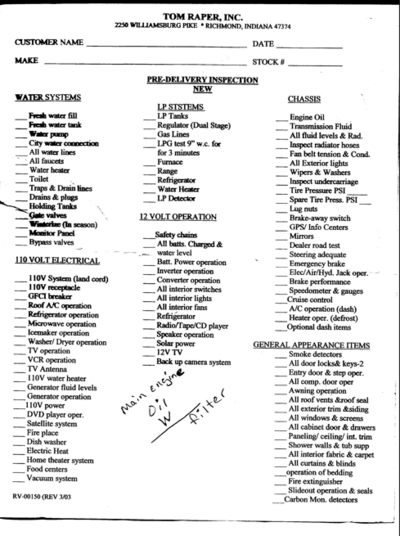(Chip)
Well-known member
My TT had an untimely death from a tree, so we are looking for a new rv. I would like a diesel pusher, so I can drag my jeep around behind it. I have found a few older Newmars for sale within a few hours from me. Anything to watch out for other than tire age? The one I want is a 2002 Dutch Air and Has a 330 Cat in it. May go look at it this weekend. Thanks!
Last edited:

